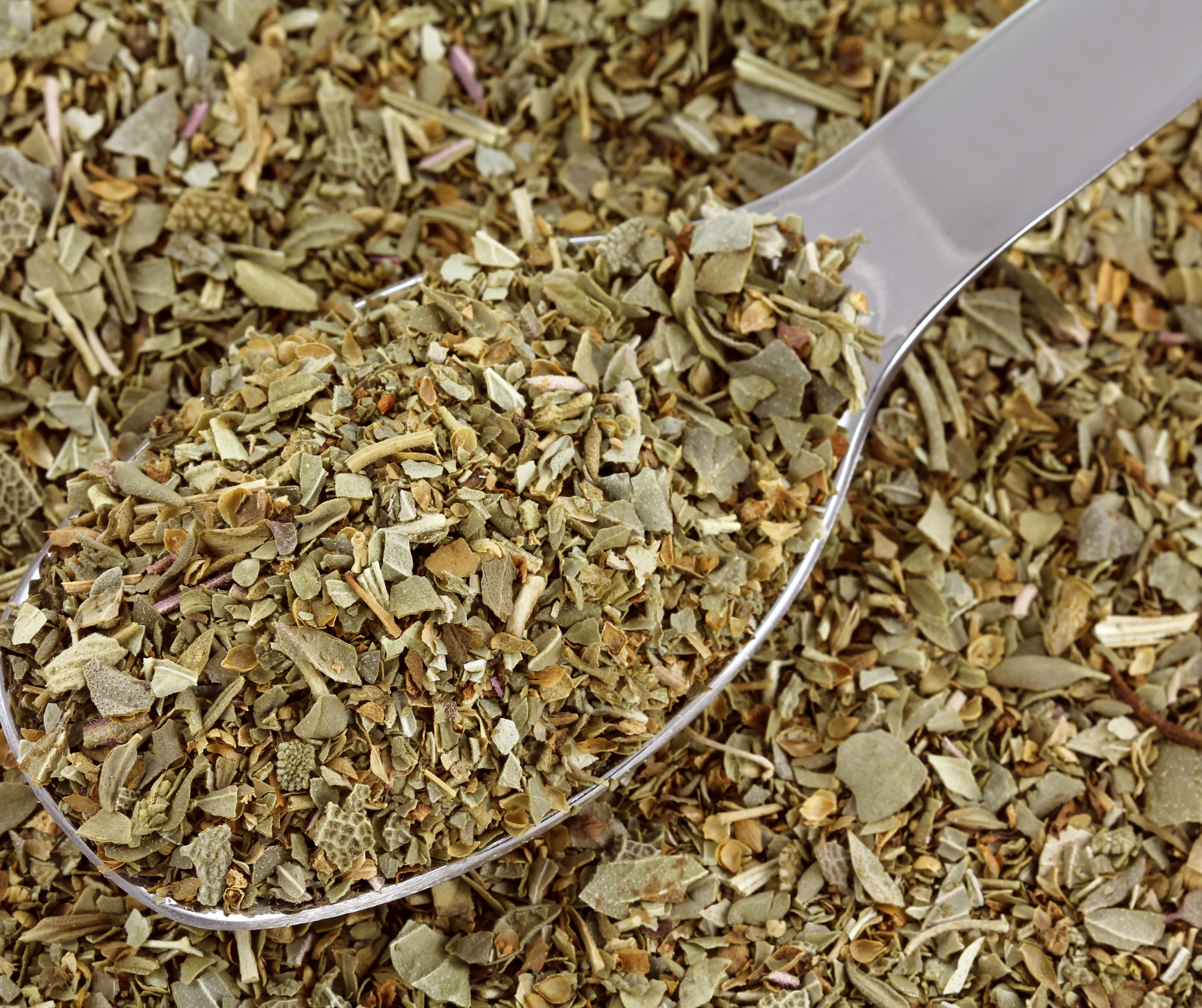Italian Herb Seasoning 1 oz
Italian seasoning is a blend of dried herbs and spices commonly used in Italian cuisine, but it's also versatile and can be used in various other dishes. This seasoning typically includes a combination of dried herbs like basil, oregano, thyme, rosemary, marjoram, and sometimes garlic powder and red pepper flakes. Here are some common uses for Italian seasoning:
Italian Dishes: Italian seasoning is, of course, commonly used in Italian recipes. It's added to pasta sauces, such as marinara and Bolognese, as well as to dishes like lasagna, spaghetti, and pizza. It imparts a traditional Italian flavor to these dishes.
Pizza: Italian seasoning is often sprinkled on top of pizza for added flavor. It complements the tomato sauce, cheese, and various toppings.
Bread and Pizza Dough: It can be mixed into bread or pizza dough to infuse the dough with a savory herb flavor. This is especially popular for making garlic bread and focaccia.
Salad Dressings: Italian seasoning can be used in homemade salad dressings and vinaigrettes to add depth and complexity to the flavor. It pairs well with greens, tomatoes, and other salad ingredients.
Roasted Vegetables: Italian seasoning is a flavorful addition to roasted vegetables like potatoes, carrots, and bell peppers. It can be combined with olive oil and drizzled over the vegetables before roasting.
Grilled Meats and Vegetables: It can be used as a seasoning for grilled meats, such as chicken, steak, or pork chops. It's also great for grilling vegetables like zucchini, eggplant, and asparagus.
Soups and Stews: Italian seasoning can be added to soups, stews, and chili to enhance the overall flavor. It works well in dishes like minestrone and vegetable soup.
Marinades: Italian seasoning can be part of a marinade for meats or vegetables. When mixed with oil and vinegar, it creates a flavorful base for marinating.
Italian seasoning is a blend of dried herbs and spices commonly used in Italian cuisine, but it's also versatile and can be used in various other dishes. This seasoning typically includes a combination of dried herbs like basil, oregano, thyme, rosemary, marjoram, and sometimes garlic powder and red pepper flakes. Here are some common uses for Italian seasoning:
Italian Dishes: Italian seasoning is, of course, commonly used in Italian recipes. It's added to pasta sauces, such as marinara and Bolognese, as well as to dishes like lasagna, spaghetti, and pizza. It imparts a traditional Italian flavor to these dishes.
Pizza: Italian seasoning is often sprinkled on top of pizza for added flavor. It complements the tomato sauce, cheese, and various toppings.
Bread and Pizza Dough: It can be mixed into bread or pizza dough to infuse the dough with a savory herb flavor. This is especially popular for making garlic bread and focaccia.
Salad Dressings: Italian seasoning can be used in homemade salad dressings and vinaigrettes to add depth and complexity to the flavor. It pairs well with greens, tomatoes, and other salad ingredients.
Roasted Vegetables: Italian seasoning is a flavorful addition to roasted vegetables like potatoes, carrots, and bell peppers. It can be combined with olive oil and drizzled over the vegetables before roasting.
Grilled Meats and Vegetables: It can be used as a seasoning for grilled meats, such as chicken, steak, or pork chops. It's also great for grilling vegetables like zucchini, eggplant, and asparagus.
Soups and Stews: Italian seasoning can be added to soups, stews, and chili to enhance the overall flavor. It works well in dishes like minestrone and vegetable soup.
Marinades: Italian seasoning can be part of a marinade for meats or vegetables. When mixed with oil and vinegar, it creates a flavorful base for marinating.
Italian seasoning is a blend of dried herbs and spices commonly used in Italian cuisine, but it's also versatile and can be used in various other dishes. This seasoning typically includes a combination of dried herbs like basil, oregano, thyme, rosemary, marjoram, and sometimes garlic powder and red pepper flakes. Here are some common uses for Italian seasoning:
Italian Dishes: Italian seasoning is, of course, commonly used in Italian recipes. It's added to pasta sauces, such as marinara and Bolognese, as well as to dishes like lasagna, spaghetti, and pizza. It imparts a traditional Italian flavor to these dishes.
Pizza: Italian seasoning is often sprinkled on top of pizza for added flavor. It complements the tomato sauce, cheese, and various toppings.
Bread and Pizza Dough: It can be mixed into bread or pizza dough to infuse the dough with a savory herb flavor. This is especially popular for making garlic bread and focaccia.
Salad Dressings: Italian seasoning can be used in homemade salad dressings and vinaigrettes to add depth and complexity to the flavor. It pairs well with greens, tomatoes, and other salad ingredients.
Roasted Vegetables: Italian seasoning is a flavorful addition to roasted vegetables like potatoes, carrots, and bell peppers. It can be combined with olive oil and drizzled over the vegetables before roasting.
Grilled Meats and Vegetables: It can be used as a seasoning for grilled meats, such as chicken, steak, or pork chops. It's also great for grilling vegetables like zucchini, eggplant, and asparagus.
Soups and Stews: Italian seasoning can be added to soups, stews, and chili to enhance the overall flavor. It works well in dishes like minestrone and vegetable soup.
Marinades: Italian seasoning can be part of a marinade for meats or vegetables. When mixed with oil and vinegar, it creates a flavorful base for marinating.

